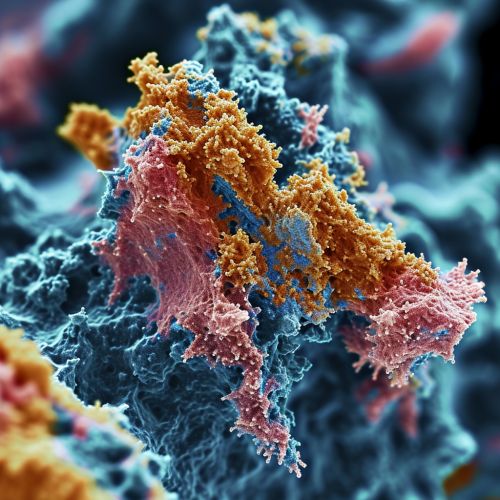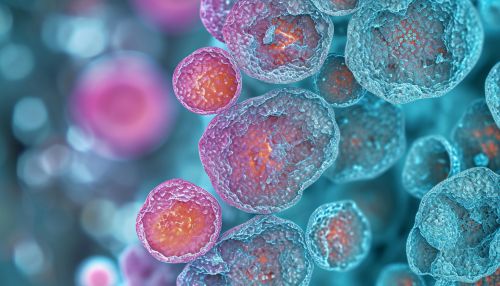Interferon gamma
Introduction
Interferon gamma (IFNγ) is a dimerized soluble cytokine that is the only member of the type II class of interferons. The existence of this interferon, which early in its history was known as immune interferon, was described by E. F. Wheelock as a product of human leukocytes stimulated with phytohemagglutinin, and by others as a product of antigen-stimulated lymphocytes. It was also shown to be produced in human lymphocytes. It was found to be a key player in the immune response, with far-reaching effects on both innate and adaptive immunity.


Structure
IFNγ, or type II interferon, is a cytokine that is critical for innate and adaptive immunity against viral and intracellular bacterial infections and for tumor control. IFNγ is an important activator of macrophages and inducer of Class II major histocompatibility complex (MHC) molecule expression. Aberrant IFNγ expression is associated with a number of autoinflammatory and autoimmune diseases. The importance of IFNγ in the immune system stems in part from its ability to inhibit viral replication directly, and most importantly from its immunostimulatory and immunomodulatory effects. IFNγ is produced predominantly by natural killer (NK) and natural killer T (NKT) cells as part of the innate immune response, and by CD4 Th1 and CD8 cytotoxic T lymphocyte (CTL) effector T cells once antigen-specific immunity develops.
Function
IFNγ has antiviral, immunoregulatory, and anti-tumor properties. It alters transcription in up to 30 genes producing a variety of physiological and cellular responses. Among the effects are the increase of expression of class I and II MHC on all cells, increase of expression of antigen presentation machinery (APM), and alteration of the proteasome to produce more peptides for presentation by MHC class I. IFNγ also promotes adhesion and binding required for leukocyte migration and causes the proliferation and differentiation of T lymphocytes.
Clinical Significance
IFNγ is known to be involved in a number of inflammatory and autoimmune diseases, and its role in these processes is currently the subject of intensive scientific research. In addition, recombinant IFNγ (rIFNγ) is used clinically as a treatment for a number of conditions, including chronic granulomatous disease and osteopetrosis. The use of IFNγ in the treatment of other diseases, such as cancer, is currently being investigated in clinical trials.
